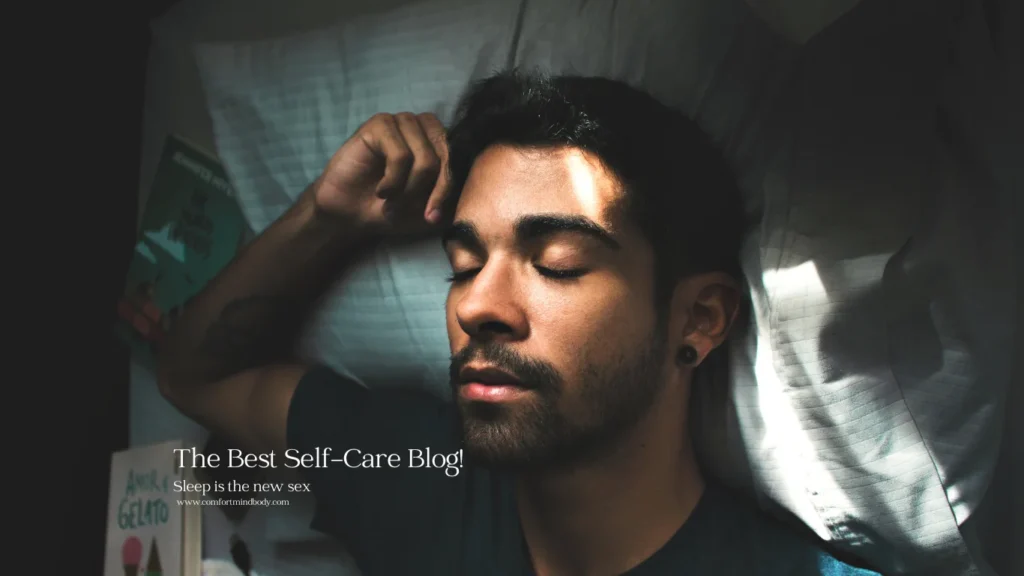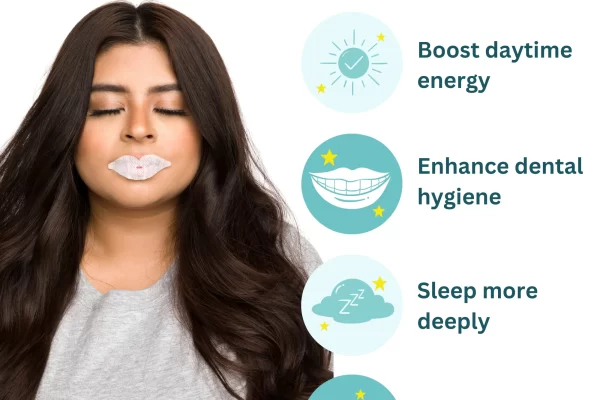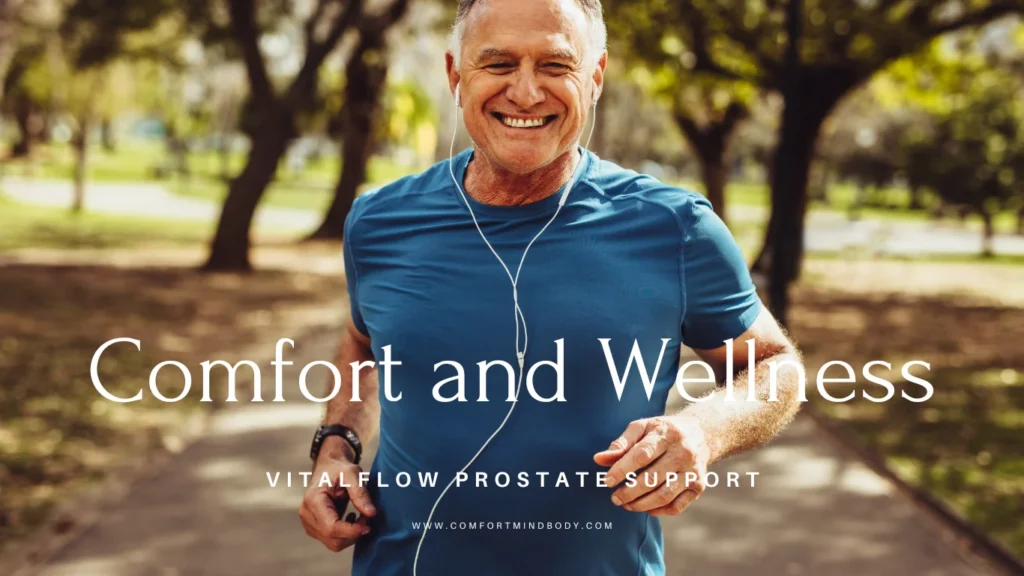Sleep is the new sex. Sounds intriguing, right? It’s partially true, but of course, sleep is more important. There might be a lot of individuals who won’t agree, but facts are facts. Therefore, both a crucial in a balanced human organism functions.
In the last few years, our society has tried to change how we think about sleep and how we practice it. It transmits to diverse audiences that snoozing is not an unusual way. The main part of life shows us how we see time, bodies, and human actions. This is especially true for gender and sexuality.
Page Contents
ToggleSleep is a New Sex
Welcome to the fascinating world of sleep, where science meets art and technology meets nature. In today’s fast-paced world, sleep has become a luxury that many of us can’t afford.
We often sacrifice sleep for work, social life, or entertainment, thinking that we can catch up on it later. Sleep is not a luxury. It is a necessity for our physical, mental, and emotional health. Sleep is the new sex, and it can transform your life in ways you never thought possible.
Sleep is the new sex? Sleep can boost your mood and productivity. It also helps improve your memory and creativity. Sleep affects every part of your life. So, are you ready to unlock the benefits of sleep and take your life to the next level? Let’s dive in!
The Science Behind Sleep
Sleep is a New Sex
Sleep is a remarkable and essential phenomenon, a natural state that our mind and body slip into regularly. It encompasses altered consciousness, reduced sensory activity, and a calming of our voluntary muscles. But its significance goes far beyond mere rest:
Restoration and Rejuvenation: While we sleep, our body repairs itself. It fixes damaged tissues, makes important hormones, and strengthens our immune system.
Brain Activity and Memory: Sleep is a cognitive powerhouse. During sleep, our brain strengthens memories, handles emotions, and removes toxins. This leaves us feeling refreshed and renewed.
Stages of Sleep: This intricate process comprises distinct stages. It starts with light sleep. Then, it moves into true sleep. Next, it deepens into a state of relaxation. Finally, it reaches rapid eye movement (REM) sleep. This phase is important for learning, memory, and processing emotions.
Health Impacts: The consequences of sleep deprivation or poor-quality sleep are profound and far-reaching. Obesity, diabetes, heart disease, and a weak immune system are serious issues. Mental health problems like depression and anxiety also matter. Cognitive decline is another concern. The impact of these problems is significant.
So, is sleep the new sex? Given these undeniable truths, prioritizing sleep isn’t a luxury; it’s a necessity. It’s a cornerstone of health and well-being that deserves a prominent place in our daily routines. A commitment to quality sleep is an investment in our health. It helps us wake up each day ready to face challenges with energy and focus.
Sleep and Its Impact on Health
Sleep is a New Sex
Sleep is crucial for our overall health and well-being. Not getting enough sleep or having bad sleep can cause many health issues. These include obesity, diabetes, heart disease, a weak immune system, and cancer.
Obesity is one of the most significant risks associated with a lack of sleep. Sleep deprivation disrupts the hormones that regulate hunger and appetite, leading to overeating and weight gain. Not getting enough sleep lowers our energy. This makes us less likely to exercise and more likely to eat unhealthy foods.
Diabetes is another health problem associated with poor sleep. Not getting enough sleep or having bad sleep can cause insulin resistance. This means our body can’t use insulin well, which leads to high blood sugar levels. Insulin resistance can lead to type 2 diabetes, a chronic condition that affects millions of people worldwide.
Cardiovascular disease is also linked to poor sleep. Lack of sleep can lead to high blood pressure, a major risk factor for heart disease and stroke. Lack of sleep raises stress hormones in our bodies. This can harm our blood vessels and raise our risk of heart disease.
A weakened immune system is another consequence of poor sleep. During sleep, our body produces cytokines, a type of protein that helps fight infections and inflammation. Lack of sleep reduces the production of cytokines, making us more susceptible to infections and diseases.
Dryft Sleep Mouth Tape
Dryft Sleep Earplugs
- Noise-canceling ear plugs for a better night’s rest
- Reduces sound and disruption for sleep, study, work or travel
- Comfortable silicone molds to the shape of your ear
- Medical-grade, latex-free, and made of safe silicone that’s reusable
- 12 pairs (24 individual ear plugs) per package
Sleep and Mental Well-being
Sleep is a New Sex
Sleep is essential for our mental well-being. It is crucial for emotional processing, memory consolidation, and cognitive functions. Not getting enough sleep or having bad sleep can cause mental health issues. These include depression, anxiety, and problems with thinking.
Depression is a common mental health problem associated with poor sleep. Lack of sleep can lead to a negative mood, irritability, and reduced motivation. Chronic sleep deprivation can also lead to changes in brain chemistry, leading to depression and other mental health problems.
Anxiety is another mental health problem linked to poor sleep. Lack of sleep can lead to increased levels of stress hormones, making us more anxious and less able to cope with stress. Chronic sleep deprivation can change how our brains work. This makes us more likely to feel anxious and have other mental health issues.
Cognitive decline is also associated with poor sleep. Lack of sleep can lead to memory problems, reduced attention span, and poor decision-making skills. Chronic sleep deprivation can change how the brain works and looks. This increases the risk of dementia and other thinking problems.
Sleep and Productivity
Sleep is a New Sex
Sleep is crucial for our productivity and performance. It is essential for concentration, focus, and creative thinking. Lack of sleep or poor quality sleep can lead to reduced productivity, poor performance, and increased risk of accidents.
Sleep deprivation can affect our ability to concentrate and focus on tasks. It can also reduce our creativity and problem-solving skills. Lack of sleep can also impair our decision-making skills, making us more likely to make mistakes and poor judgments.
Chronic sleep deprivation can also affect our physical performance. It can lead to reduced reaction time, slower reflexes, and decreased hand-eye coordination. These effects can increase the risk of accidents and injuries, especially in high-risk jobs.
Therefore, it’s crucial to prioritize our sleep and ensure that we get enough restful sleep each night. By doing so, we can enhance our productivity, performance, and overall quality of life.
Sleep is a New Sex

Sleep and Relationships
Sleep is a New Sex
Sleep isn’t just a solo act; it’s a critical player in the theater of our relationships. Here’s how:
Mood and Emotions: Sleep significantly influences our emotional well-being. When we’re well-rested, we’re more likely to be in a good mood, exhibit empathy, and communicate effectively. Conversely, a lack of sleep can usher in irritability and mood swings, making it challenging to connect with others.
Interpersonal Harmony: Quality sleep contributes to smoother interactions with loved ones. It’s the difference between being patient and understanding or short-tempered and reactive. Restorative sleep paves the way for more harmonious relationships.
The Intimate Side: Sleep plays a role in our intimate lives, too. Chronic sleep deprivation can cause erectile dysfunction in men. Both men and women may have a lower sex drive due to lack of sleep. Sleep also regulates sex hormone levels, influencing sexual desire and performance.
Overall Well-Being: Prioritizing sleep isn’t just about individual health; it’s about nurturing connections with those around us. Getting enough restful sleep can improve our relationships, boost our moods, and increase our overall happiness and well-being.
Sleep is the quiet hero of our social lives. It shapes how we interact and the quality of our relationships. By cherishing the value of rest, we can unlock the potential for deeper, more fulfilling connections with others. It’s a reminder that self-care extends to the bonds we cherish most.
The Sleep-Relationship Connection: Nurturing Bonds Through Rest
Sleep is a New Sex
Sex can contribute to your overall fitness and well-being. Researches display that orgasm, whether from sex with a partner or masturbation, can help you sleep better. The link between sex and sleep goes both ways.
This means that sex can affect sleep, and sleep can impact sex life. Taking long breaks can increase sexual desire and arousal. On the other hand, not getting enough sleep can lower these feelings.
Men who work long hours that interrupt naps or have sleep problems may have a higher risk of erectile dysfunction.
Sleep is the new sex. Research implies that when sex involves orgasm, it can help people fall asleep. After the sexual climax, the body releases hormones like oxytocin and prolactin. These hormones help create feelings of satisfaction and enjoyment.
At the same time, the generation of cortisol, a hormone that generates alertness and excitement, declines following orgasm. This mixture of hormonal cycles makes people feel exhausted and ready for sleep. Although having an orgasm naturally helps people rest, a small number of people have a different experience.
Tips for Improving Your Sleep
Sleep is a New Sex
Improving your sleep is essential for your overall health and well-being. Here are some tips to help you get better sleep:
- Stick to a regular sleep schedule: Go to bed and wake up at the same time every day, even on weekends.
- Create a relaxing sleep environment: Make sure your bedroom is dark, quiet, and cool, and use comfortable bedding.
- Avoid caffeine, alcohol, and nicotine: These substances can interfere with your sleep and reduce sleep quality.
- Exercise regularly: Regular exercise can improve sleep quality and duration.
- Practice relaxation techniques: Techniques such as deep breathing, meditation, and yoga can help you relax and fall asleep faster.
- Use sleep-tracking devices. Smartwatches and fitness trackers can help you monitor your sleep. They can also help you find patterns.
- Sleep is the new sex? Let’s dig in more.
Unlocking the Power of Sleep: Transforming Your Life
Sleep is a New Sex
Sleep isn’t just a luxury; it’s a fundamental pillar of well-being that can revolutionize your life. It’s the new secret to unlocking your fullest potential and experiencing a transformation you never knew possible. Here’s why sleep should be your top priority. Sleep is the new sex:
1. Boosting Your Mood: A good night’s sleep can lift your mood. It helps you wake up feeling refreshed and ready to face the day with a positive attitude.
2. Supercharging Productivity: Quality sleep fuels your productivity, allowing you to accomplish tasks efficiently and effectively.
3. Enhancing Memory: Sleep plays a crucial role in memory consolidation, helping you retain and recall information more effectively. Sleep is the new sex…
4. Igniting Creativity: Your brain works on creative problem-solving while you sleep. This makes sleep a friend for innovation.
5. Nurturing Health: Prioritizing sleep can improve your physical health, strengthen your immune system, and even support weight management.
6. Fostering Relationships: A well-rested you is more patient and emotionally resilient, enhancing your relationships with loved ones.
7. Elevating Quality of Life: Ultimately, sleep is the cornerstone of your well-being. By making it a must-do part of your daily routine, you can see a big change in your quality of life.
So, sleep is the new sex, Embrace the power of sleep, and witness the remarkable benefits it can bestow upon you. It’s time to prioritize your rest and discover the life-altering transformation it brings. Get that good night’s sleep and unlock your true potential!
Disclosure: Please note that the links within this product review may generate a small commission. This compensation aids in supporting our research and editorial team. We wish to highlight that our recommendations solely pertain to high-quality products.
Disclaimer: This article serves purely informational purposes and is not intended for the diagnosis, treatment, or cure of any medical condition. Prior to making any changes to your diet or lifestyle or taking supplements, it is imperative to consult a qualified healthcare professional.






